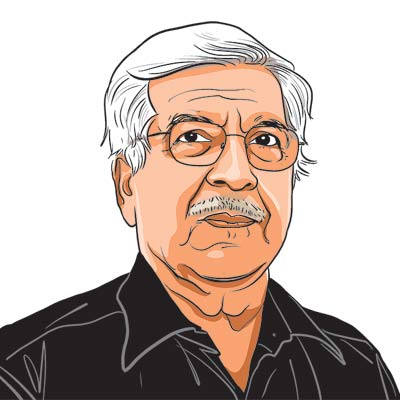Opinion Naxalism: The middle I will not write
Almost a decade ago,I was mandated to structure a new paradigm for recruitment and training of the higher civil services in India.
In an column written in The Indian Express on ‘Liberal Days’ a few weeks ago,I had threatened to write on the security issue,in the context of Naxalite violence.
Almost a decade ago,I was mandated to structure a new paradigm for recruitment and training of the higher civil services in India. This meant that the group I chaired had to look ahead for the traits and skills of that elite force we call the administrative,police,foreign and other services could only be honed in that context. We did that,and an extraordinary group of Indians from all walks of life helped us.
There is a chapter there on the past and the future,if my memory serves me right,since I don’t have a copy of the report. But it has been put on the Web by somebody. The critical sections on the civil services’ past performance are attributed to me,but in fact were written by a distinguished civil servant who was a member of the committee. He also wrote the first draft of an extraordinary section on security at home,based on our conversations. In that,he delivered a historical tour de force and wrote on the many rebellions against the structure of the nascent republic and the concept of the mailed fist and velvet glove that was designed through experience by the greats who thought through India’s security.
It was an extraordinary doctrine and convinced me that a strong centralized elite civil service was still needed in the formative years of the Indian state. We encouraged vertical mobility with the private sector,but I knew that it was still early to give up the steel frame,much as I criticized the frame.
When I was V-C of JNU,my students’ union president was a CPI(ML) (Vinod Mishra faction) activist. Chandrashekhar had a love-hate relationship with me. He respected the teacher in me,and fought the V-C. One day,when he pushed me very far,instead of calling in the police,I went on satyagraha strike,for I knew I was right. They are idealists,and couldn’t take it for more than forty-eight hours. They gave up their resistance for what I had offered them in the beginning.
I was told something similar had happened earlier with Sitaram Yechury and Prakash Karat. When they are young,I would tell myself,they are idealists and they push you. Later,they will contribute to India,I would tell myself — and it is my duty to get them there. Are we changing the received security doctrine,I was going to ask in my middle column — and if so,a non-trivial description of what we were planning to do was needed.
The May 28 attack on the train going to Kurla changed all that. No amount of explanation can condone the killing of innocent sleeping women and children in the dark of the night by stealth. We have to put an end to this. I have a fauji streak in my family,and I know the way the machine works. But there seems no go now. The idea of development and involvement has to be there always,but the Indian democratic state,emerging from the midnight hour,is in the ultimate analysis a progressive force in the world of today,and it cannot watch from the outside when some would destroy its human foundations.
I guess my middle will have to wait.


